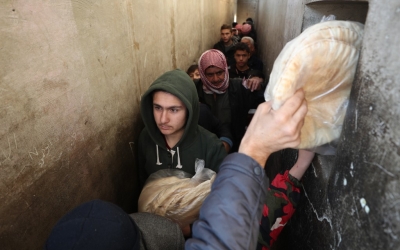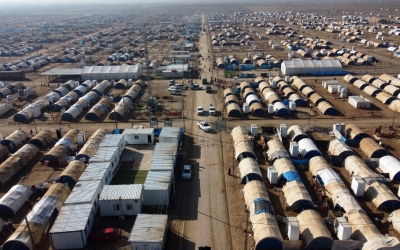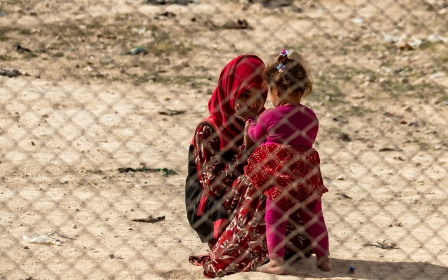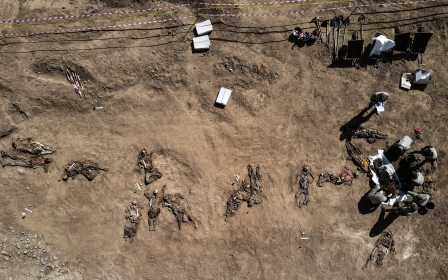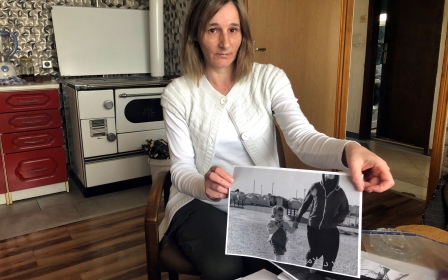'Poverty and inequality' paving way for IS resurgence in Syria and Iraq, US warns
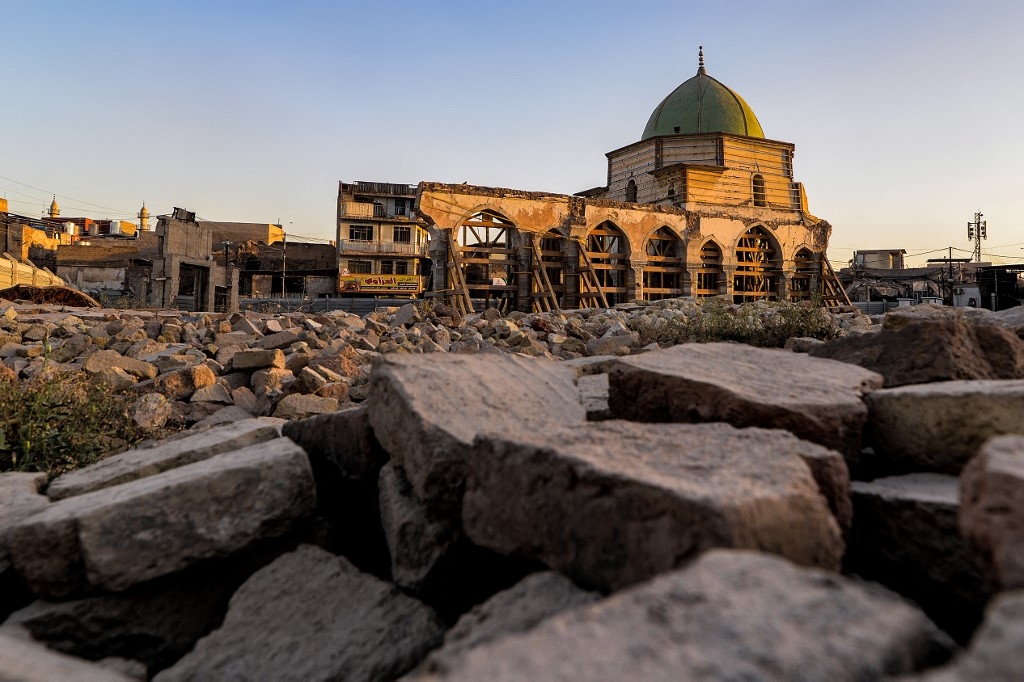
The deteriorating economic conditions in Iraq and Syria are allowing the Islamic State (IS) group to reconstitute, the State Department’s envoy to the US-led coalition battling the group has warned.
John Godfrey, acting US special envoy for the Global Coalition to Defeat ISIS, spoke at a news conference on Thursday and laid out how the region's economic crisis has affected the coalition's operations.
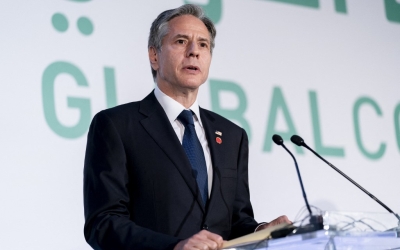
New MEE newsletter: Jerusalem Dispatch
Sign up to get the latest insights and analysis on Israel-Palestine, alongside Turkey Unpacked and other MEE newsletters
"One thing I heard consistently in both Iraq and Syria is that poverty, inequality and perceived injustice continue to drive many young people to join terrorist groups, including [IS]," Godfrey said.
"The combination of a severe drought and a weak harvest that will be about half of what is normal has created a significant economic downturn that impacts the revenues of local partners and also contributes to unemployment," Godfrey, who recently returned from a visit to Iraq and Syria, said.
According to the envoy, local partners told him that the IS group is "actively seeking to exploit that economic situation to reconstitute presence, or to try to reconstitute presence, in areas hardest hit by the economic downturn".
This week's summit is the first anti-IS coalition meeting of its kind to take place in two years. The 83-nation coalition fractured under the presidency of Donald Trump, partly due to his unilateral decision to withdraw US troops from Syria.
Syria's economic woes
After ten years of war, the economic downturn has hit Syria from multiple sides, with little signs of improvement.
Food prices have increased nearly fivefold during the past few years, as the government's attempts to patch the country's broken infrastructure flounder.
In March, Damascus raised petrol prices in government-held parts of Syria by more than 50 percent after the value of the Syrian pound hit record lows on the black market.
A month later, it doubled its official exchange rate to the US dollar, which had a marginally positive effect on Syria's central bank but not near enough to put the country on any road to recovery.
Meanwhile, the government has done little to meet conditions that the international community has set for further humanitarian aid relief.
Still, humanitarian groups have warned the US that its Caesar sanctions against the Syrian government have only exacerbated the country's struggles.
While the US writes in humanitarian waivers into all of its punitive sanctions, rights groups warn that banks tend to over-comply out of fear of secondary sanctions, putting even more strain on humanitarian efforts that could offer some sort of relief to struggling communities at risk of radicalisation.
At the same time, President Bashar al-Assad's administration is charging exorbitant fees - one of the government's biggest sources of income - to military-aged men who fled the country or refused to conscript in the army.
In February, the government announced plans to seize property and assets of Syrian refugees and internally displaced people who fail to pay the fees.
IS in Iraq and Syria
The IS group lost its last stronghold in Syria, Baghouz, in March 2019, and is considered territorially defeated in the war-torn country. Still, the group has continued to carry out small-scale attacks on the Syrian government, as well as on the US-backed Syrian Democratic Forces (SDF).
While Iraq declared victory over the IS group in December 2017, the group has continued to wage a low-level insurgency in the rural, mountainous parts of northern and western Iraq and is suspected to have been responsible for several bombings in Baghdad this year.
Meanwhile, thousands of captured fighters and their families have been transferred to makeshift camps and detention centres run by the SDF in Syria.
It is estimated that the camps house around 43,000 men, women and children - placing a major strain on local authorities.
On Thursday, Godfrey warned that the residents of those camps "constitute a potential threat to security in the region and beyond".
At the same time, human rights groups have repeatedly warned of the dire conditions in the camps and the potential for radicalisation among impoverished residents.
In April, the US military chief in the Middle East said that the radicalisation of children at camps in Syria poses the biggest threat to the region, warning that "unless we find a way to repatriate them and reintegrate them and deradicalise them, we're giving ourselves the gift of fighters five to seven years down the road".
The US has repeatedly called on allies to repatriate their citizens who are in SDF custody, and prosecute them if possible. On Monday, Secretary of State Antony Blinken reiterated the call during a summit in Rome of the international coalition against the IS group, with mixed reactions.
The United States has repatriated a total of 28 Americans to date, Godfrey said on Thursday. Of that group, 12 are adults and 10 have been prosecuted or are undergoing prosecution.
Middle East Eye delivers independent and unrivalled coverage and analysis of the Middle East, North Africa and beyond. To learn more about republishing this content and the associated fees, please fill out this form. More about MEE can be found here.


